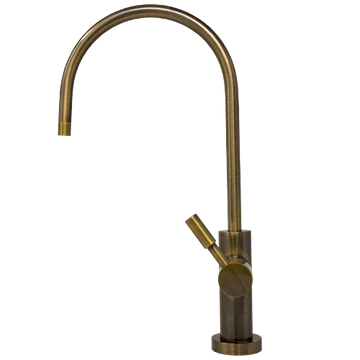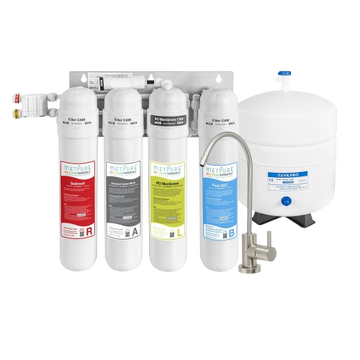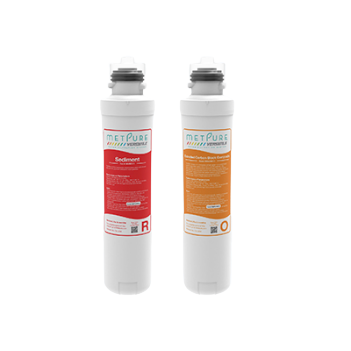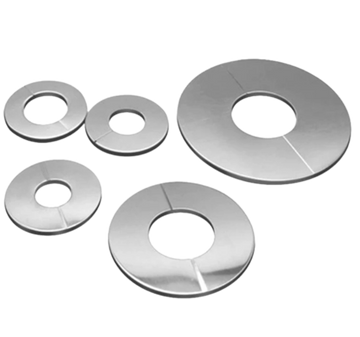Importance of Clean and Safe Drinking Water
Drinking water is super important for staying healthy. Clean and safe water helps our bodies work well. There are occasions when the water that comes out of our taps may not be as pure as we believe. It may contain harmful substances such as chemicals, microorganisms, or other materials that might cause illness. It is for this reason that having access to clean drinking water is crucial.
Overview of Home Water Treatment Systems
Luckily, there are ways to make our tap water safer to drink. These are called home water treatment systems. These systems are like special filters that help take out the bad stuff from the water. They come in different shapes and sizes, and each type works in its own way. Some are small, like pitchers you can put in your fridge, while others are bigger and can clean all the water in your whole house.
Understanding Water Contaminants

Common Contaminants in Drinking Water
Biological Contaminants
Sometimes, water can have tiny living things in it that we can't see with our eyes. These are called biological contaminants.
Chemical Contaminants
These chemicals can be harmful if we swallow them. They can come from different sources like factories, farms, or even old pipes.
Types of Home Water Treatment Systems
1. Pitcher Filters
Pitcher filters are like big jugs with a special filter inside. When you fill the pitcher with tap water, the filter removes impurities while the water sits. You can then drink the clear water by pouring it out.
2. Faucet-Mounted Filters
Similar to little filters, faucet-mounted filters are attached to your kitchen faucet. Before you use the water for drinking or cooking, it is filtered to remove impurities and chemicals when the tap is turned on.
3. Countertop Filters
Countertop filters are bigger than faucet filters and sit on your kitchen counter. When you attach them to the faucet, contaminants are removed from the water as it passes through the filter. They're good for cleaning larger amounts of water.
4. Under-Sink Filters
These filters are installed under your kitchen sink. They purify the water that emerges from a particular faucet. Not only do they function incredibly effectively at eliminating impurities, but they also take up no visible space on your tabletop.
Point-of-Entry Systems
Whole-House Filtration Systems
Whole-house filtration systems clean all the water that enters your home. They are usually installed where the main water line comes into the house. This means every tap in your house will have cleaner water.
Water Softeners
Water softeners are for removing minerals like calcium and magnesium that can make water "hard." Hard water can cause issues with pipes and appliances. These systems replace the hard minerals with softer ones, making the water gentler.
Systems of Reverse Osmosis
Systems for reverse osmosis are excellent at filtering out a lot of impurities from water. To provide you with clean, safe water, they employ a unique procedure that forces water through a membrane filter.
How to Choose a Water Filter
Testing Water Quality
Checking the contents of your water is a good idea before selecting a filter. A water quality test can help you with this. You can find out what kind of pollutants are in your water with this test. It assists you in selecting the ideal filter to deal with those particular contaminants.
Contaminant Removal Capabilities
Different filters are good at removing different things. Some are great at getting rid of germs, while others are better at removing chemicals or tiny particles. Look for a filter that can remove the contaminants you're concerned about in your water.
Flow Rate and Water Usage
How quickly the filter can clean the water depends on its flow rate. A filter with a high flow rate is what you need if you need a lot of water fast. To ensure that the filter can meet your needs, take into account the amount of water your home uses as well.
Maintenance Requirements
Filters need regular maintenance to work well. Some need new cartridges or parts replaced regularly, while others might need cleaning. Make sure you understand how often maintenance is needed and if it's something you can manage easily.
Determining Your Water Filter Needs
Assessing Specific Water Quality Issues
Examine the contents of your water. Certain places may be more susceptible to microbial problems, while others may be more susceptible to chemical or other concerns. Choosing the appropriate filter to address such issues is made easier by being aware of what is in your water.
Understanding Local Water Sources
Different places get water from different sources. It could be from a river, a lake, or even underground. Sometimes, the water might pick up things from these sources that need to be filtered out. Understanding where your water comes from can help you know what filters will work best.
Steps to Select the Right Water Treatment System
Researching Available Options
Examine many kinds of water purification systems that are out there first. Find out what pollutants they can remove and how they operate. This aids in your comprehension of the potential best system for your house.
Consulting with Water Treatment Professionals
Speaking with knowledgeable specialists about water filters might be beneficial at times. These professionals can offer you direction and counsel based on your unique requirements. They are able to recommend the ideal system that fits your needs.
Reading Product Reviews and Comparisons
Reading what other people say about different water filters can be really helpful. See reviews left by users who have applied these filters. You may get a decent idea of which filter could be ideal for you by comparing them based on features and functionality.
Conclusion
Taking proactive measures to ensure clean and safe drinking water at home becomes paramount with an enhanced understanding of water treatment systems. This isn't solely about personal health; it extends to the well-being of those we cherish. Moving towards clean water is a prudent choice, whether it involves investing in the right treatment system, seeking expert advice, or delving into further research. Clean water is a fundamental entitlement for all. By selecting the most suitable water treatment system, you're not just making a choice; you're paving the way for a healthier future and better living for your family.














